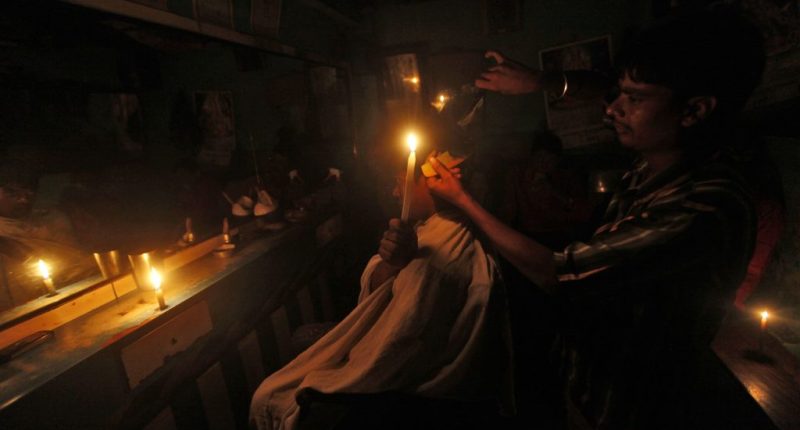A power blackout that plunged Kenya into darkness on Sunday was a possible act of sabotage, a minister says.
It hit at about 20:00 local time (17:00 GMT) – Kenya’s third nationwide blackout in the past four months.
The outage disrupted several services, including the main airport in the capital, Nairobi, where two terminals were without power for several hours.
Many Kenyans have demanded answers, as anger and frustration mounts over the recurring power disruptions.
Transport Minister Kipchumba Murkomen – who has been criticized for the time it took to restore power at Nairobi’s Jomo Kenyatta International Airport (JKIA) on Sunday – has asked police to investigate the possibility that the recurrent power outages were sabotage.
“Considering the frequency of the power disruption, and taking into account the fact that JKIA is a facility of strategic national importance, we are making a formal request to the National Police Service to investigate possible acts of sabotage and coverup,” he posted on X.
After Kenya suffered its longest countrywide power outage in recent years in August, Mr Murkomen pledged that a power outage at the airport would “not happen again”.
Sunday’s blackout affected two of the busiest JKIA terminals, with the airports authority explaining that the back-up generators serving those terminals had “failed to immediately activate”.
Some Kenyans have suggested that the power cuts could be part of a plot to justify privatising the state-run electricity provider, Kenya Power and Lighting Company (KPLC).
Other Kenyans have disagreed, instead blaming KPLC’s incompetence for the blackouts.
Power had been restored to most of the country by noon on Monday, except for some parts of Nairobi and the Coast region.
In its most recent update, Kenya Power said it was “working round the clock to restore normalcy to the remaining areas as soon as possible”.
Energy Minister Davis Chirchir has attributed the outage to a powerline overload, which then caused a failure to the country’s entire power network.
He said that “scheduled minimal load-shedding” will be executed in areas with high electricity demand, a measure used in countries like South Africa to prevent system collapse during demand spikes.
It involves suspending power supply to different areas for a number of hours throughout the day.
The government will also build additional networks over the next 20 months to relieve the currently overloaded transmission lines and prevent future outages, Mr Chirchir added.
Kenya has suffered several national power outages in recent months, including on 11 November, 25 August, 4 March and in November and December last year.





